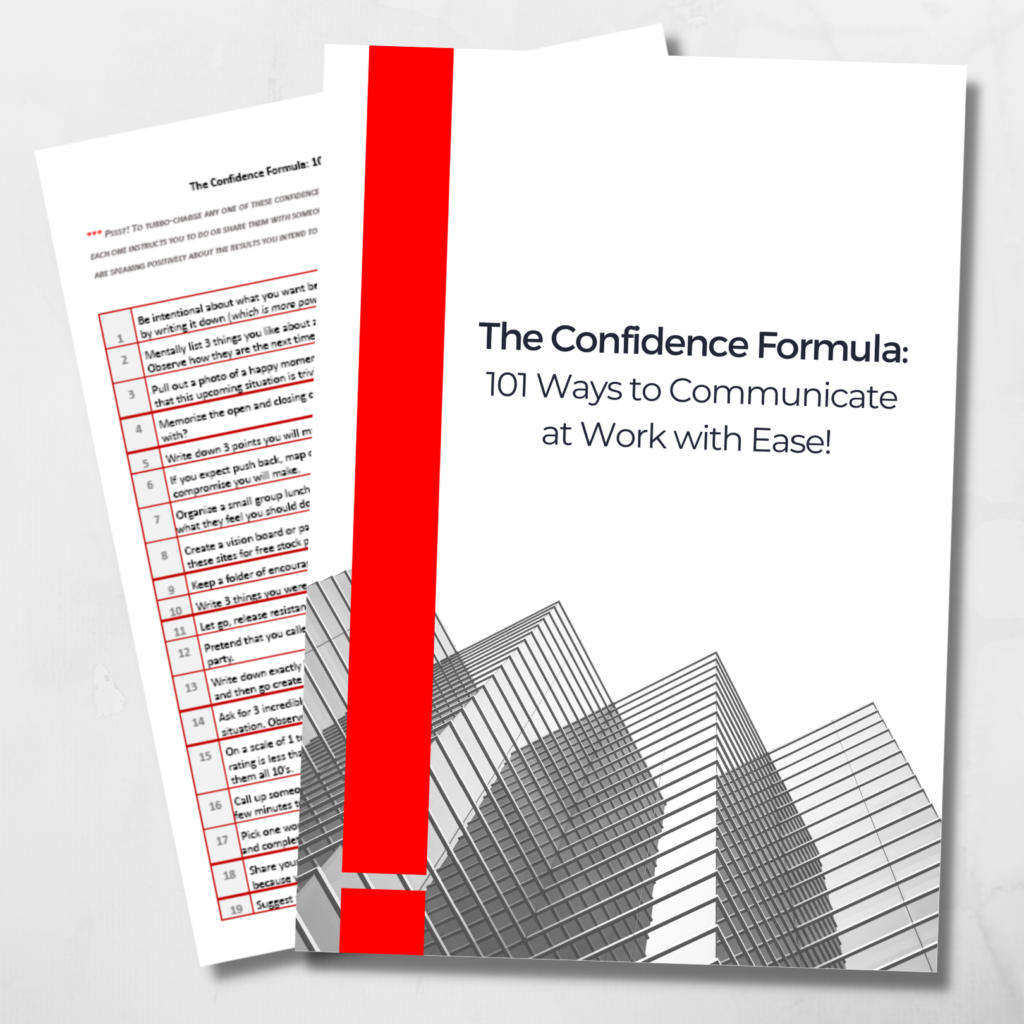While your boss, internal clients, constituents, and business partners may want the best results from you and your team so you can do more for them, what they really need is for you to be and listen to them closely.

Leaders Build Trust By Becoming Advisors
How do you engage with your clients? Having this awareness is how you take responsibility for your success as a leader. Have you considered their needs and what they would like to achieve but are unable to, due to a lack of resources or budget, for example? Instinctively, you can find out when you take on the role of being their best advisor and internal consultant.
An effective consultant who meets with a potential client for the first time, will ask the following three key questions before speaking about themselves and their products or services.
- What are the biggest risks that your department or division is experiencing right now? Talk to me about the challenges that your team may be facing.
- What are some opportunities that you are not leveraging in your business area? What have you found would be impactful for the organization as a whole if you focused on just one or two initiatives that led to achieving those opportunities?
- What resources and skills does your team need to develop in the next year? What new hires would you be looking for, that have at least one of those skills?
Listen closely to what’s being said as much as what’s not being shared directly. What does his or her tone and choice of words indicate about their state of mind?
Leaders Build Trust by Asking What Success Looks Like
Once your clients share these key insights with you, you can now align the results you promise to meet their needs. This approach opens up a conversation where you can position yourself as someone who can not only solve their problems but who also understands the end state of where they want to be in x amount of time. In terms of the scope and timing of the results they are seeking, this also gives you some specific metrics that you can be led by, answering the questions: how much and by when? This is a sharp contrast to speaking all about you and what you offer first, which can cause others to tune out quickly.
This instinctive approach can also be applied when you’re on an interview speaking with someone you have yet to work for. Before that meeting closes, you can turn to them and ask:
- What would have to happen in one-year, for me to make this role successful?
- Who was the best person you have ever hired and why?
If you were being considered to lead a talk or program for an audience, you can ask:
- Who was the best speaker you have ever had? Who was the worst? Help me understand why.
Leaders Build Trust by Listening to their Client’s Greatest Pain Points
There is an unspoken desire for people to know that you have their back and that comes with a keen understanding of their pain points. What keeps them up at night? What are they most worried about? When holding your one-on-one meetings with senior leadership, rather than kick-off with a routine status, focus on the results that you and your team are addressing that meet their greatest needs first.
To help others become successful, you want to consistently move them from pain to pleasure island – figuratively and literally. Let’s say your boss were to go away for a two-week island vacation, wouldn’t you want him or her to take that time off feeling relaxed and carefree, knowing you were leading effectively and had their back?
If on the other hand you were taking a beach vacation getaway for well-deserved downtime, wouldn’t you also want to come back refreshed and reset when returning to the office, because you had a team you could trust to run your operations like a well-oiled machine while you were away?
You learn to trust your decisions as a leader at any level in your career when you follow your instincts based on a solid understanding of where your clients are and where they want to be. This comes from simply staying a few steps ahead of them, which establishes trust and mutual partnerships. It’s not until you have a solid snapshot of where they are and how you can help, that you can propose a solution, a strategy, or program roadmap. It’s also why listening is so key —instinctively listening so that you can speak their language, finish their sentences for them, and substantiate why you are someone they can trust and qualified to lead from a place of authority.
The Confidence Formula: 101 Ways to Communicate with Clarity at Work. Download our FREE Report

Join our free Leadership audio course to Own Your Authority at work.
Grab a notebook, sit back with a cup of tea, coffee or glass of wine and listen in! Learn more below.